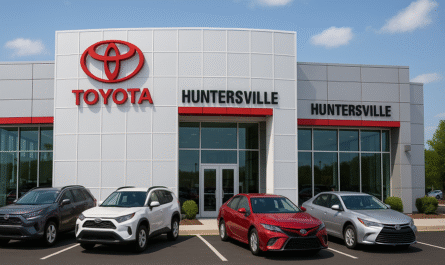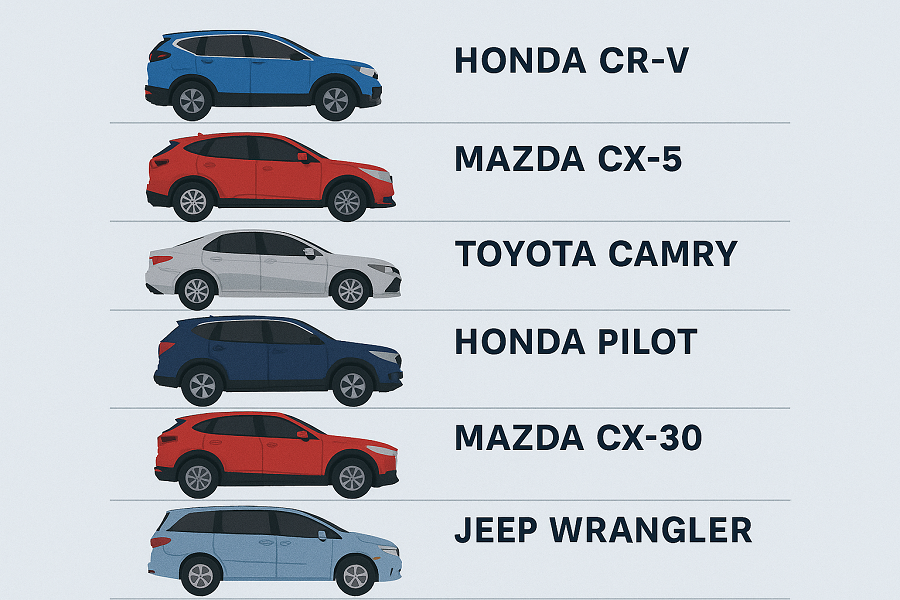Table of Contents
Table of Contents
When it comes to car insurance, most people think you can only insure a vehicle you own. But what happens if you’re driving a vehicle registered to someone else, like a friend, family member, or partner? Can you insure a car not in your name? The answer is yes, in many cases, but it comes with specific conditions, requirements, and options. This article breaks down everything you need to know about insuring a car you don’t own, including real-life scenarios, expert insights, and helpful tips to help you navigate this process.
Understanding the Basics of Insuring a Car Not in Your Name
Car insurance is typically tied to the vehicle’s owner, but there are conditions where you might need to insure a car registered to someone else. This could be due to shared ownership, temporary use, or even driving a company car. Insuring a car not in your name often requires proving an insurable interest, meaning you have a financial stake in the vehicle’s protection. Insurance companies want to ensure you’re not insuring a car you have no connection to, as this could lead to fraudulent claims.
What Is an Insurable Interest?
An insurable interest means you stand to suffer a financial loss if the car is damaged, stolen, or totaled. For example:
- You’re married to the car’s owner, and the vehicle is used for shared family responsibilities.
- You’re the primary driver of a car owned by a parent or sibling.
- You’re leasing a car, but the title is in the leasing company’s name.
Without an insurable interest, most insurers won’t let you purchase a standard auto insurance policy for a car you don’t own.
Common Scenarios for Insuring a Car Not in Your Name
Let’s explore some real-life situations where you might need to insure a car registered to someone else, along with the best insurance options for each.
Scenario 1: Driving a Family Member’s Car
Example: Sarah lives with her parents and regularly drives her mom’s car to work. The car is registered in her mother’s name, but Sarah wants to ensure she’s covered in case of an accident.
Solution: Sarah can be added as a named driver on her mother’s insurance policy. This ensures she’s covered when driving the car. Alternatively, if Sarah is the primary driver, some insurers may allow her to take out a policy on the car, provided her mother gives permission and Sarah proves an insurable interest (e.g., she contributes to maintenance or loan payments).
Tip: Always inform the insurance company about all regular drivers of the vehicle to avoid claim denials.
Scenario 2: Using a Friend’s or Partner’s Car
Example: Jake frequently borrows his girlfriend’s car for errands. The car is in her name, but Jake wants his own insurance to avoid affecting her policy in case of an accident.
Solution: Jake can purchase a non-owner car insurance policy. This type of policy provides liability coverage for drivers who don’t own the car they’re driving. It’s ideal for people who frequently borrow or rent cars but don’t want to be added to someone else’s policy.
Tip: Non-owner policies are typically cheaper than standard policies because they don’t cover physical damage to the vehicle, only liability for injuries or property damage caused to others.
Scenario 3: Driving a Company Car
Example: Maria works for a small business and drives a company-owned vehicle for deliveries. The car is registered to the business, not her.
Solution: Maria’s employer should have a commercial auto insurance policy that covers employees driving company vehicles. Maria can also get a non-owner policy for extra protection if she occasionally uses the car for personal errands (with permission).
Tip: Check with your employer to confirm you’re covered under their policy. If you use the car for personal reasons, disclose this to the insurer to ensure proper coverage.
Types of Insurance for Non-Owned Vehicles
If you’re looking to insure a car not in your name, here are the main options available:
1. Standard Auto Insurance as a Named Driver
If you have permission from the car’s owner, you can be added as a named driver on their policy. This is common for:
- Spouses or domestic partners
- Children living with parents
- Roommates sharing a car
Pros:
- Full coverage (liability, collision, comprehensive) applies when you drive the car.
- No need to purchase a separate policy.
Cons:
- Any claims you file could increase the owner’s premiums.
- Not all insurers allow non-owners to be the primary policyholder.
2. Non-Owner Car Insurance
A non-owner car insurance policy is designed for people who regularly drive but don’t own a car. It typically includes:
- Liability coverage (for bodily injury and property damage)
- Uninsured/underinsured motorist coverage (in some cases)
Pros:
- Affordable option for frequent borrowers or renters.
- Protects you without affecting the car owner’s policy.
Cons:
- Doesn’t cover damage to the car you’re driving.
- Not available in every state or from every insurer.
3. Commercial Auto Insurance
For company cars, commercial policies cover employees driving for work purposes. These policies are purchased by the business, not the individual driver.
Pros:
- Comprehensive coverage for work-related driving.
- Protects both the driver and the business.
Cons:
- May not cover personal use of the vehicle.
Is Non-Owner Car Insurance More Expensive?
One common question is whether non-owner car insurance is more expensive than standard auto insurance. In most cases, non-owner car insurance is significantly cheaper than a standard policy because it only covers liability and, in some cases, uninsured motorist protection. It doesn’t include comprehensive or collision coverage for the vehicle itself, which reduces the insurer’s risk and lowers premiums.
For example:
- A standard auto insurance policy for a car you own might cost $100–$200 per month, depending on your driving record, location, and coverage limits.
- A non-owner policy typically ranges from $20–$50 per month, making it a budget-friendly option for those who don’t own a car but drive regularly.
However, costs vary based on factors like:
- Your driving history (accidents or tickets can increase rates)
- The state you live in
- The coverage limits you choose
Tip: To get the best deal, compare quotes from multiple insurers. Providers like Geico, Progressive, and USAA often offer competitive rates for non-owner policies.
Best Non-Owner Car Insurance Providers
Finding the right non-owner car insurance policy can save you money and provide peace of mind. Here are some of the best non-owner car insurance providers based on affordability, availability, and customer service:
1. Geico
- Why It’s Great: Geico offers non-owner policies in most states with competitive rates and an easy online quote process.
- Best For: Drivers looking for affordable coverage and a user-friendly experience.
- Average Cost: $25–$40 per month for liability coverage.
2. Progressive
- Why It’s Great: Progressive provides flexible non-owner policies and discounts for safe drivers.
- Best For: Those with a clean driving record who want customizable coverage.
- Average Cost: $30–$50 per month.
3. USAA
- Why It’s Great: USAA is known for excellent customer service and low rates, but it’s only available to military members, veterans, and their families.
- Best For: Eligible military families needing reliable coverage.
- Average Cost: $20–$35 per month.
4. State Farm
- Why It’s Great: State Farm offers non-owner policies with strong local agent support and bundling options.
- Best For: Drivers who prefer personalized service.
- Average Cost: $30–$45 per month.
Tip: Use comparison tools like Insurify or The Zebra to get quotes from multiple providers and find the best non-owner car insurance for your needs.

Expert Insights: What Insurers Look For
According to insurance expert John Miller, a licensed agent with over 15 years of experience, “Insurers are primarily concerned with risk and liability. When you’re insuring a car not in your name, they’ll want proof of your connection to the vehicle, such as a lease agreement, permission from the owner, or evidence that you’re the primary driver.”
Miller adds, “Non-owner policies are a great solution for occasional drivers, but they’re not a substitute for full coverage. Always clarify with the insurer what’s covered and what’s not to avoid surprises during a claim.”
Practical Tips for Insuring a Car Not in Your Name
- Get Permission from the Owner: Always obtain written consent from the car’s registered owner before seeking insurance. This protects you legally and ensures the insurer will honor your policy.
- Compare Insurance Quotes: Shop around for insurers that offer non-owner policies or allow non-owners to be added to existing policies. Websites like Compare.com or Insurify can help you find the best rates.
- Disclose All Drivers: Be upfront with the insurance company about who drives the car regularly. Failing to disclose this could lead to denied claims.
- Check State Laws: Car Insurance regulations vary by state. For example, some states require the policyholder to be the registered owner, while others are more flexible. Contact your state’s Department of Motor Vehicles (DMV) for clarification.
- Consider Usage-Based Insurance: If you only drive occasionally, look into pay-per-mile or usage-based insurance programs like Metromile, which can save money for non-owners.
Potential Challenges and How to Overcome Them
Challenge 1: Insurance Company Restrictions
Some insurers may refuse to issue a policy to someone who isn’t the registered owner. Solution: Work with larger insurers like Geico, Progressive, or State Farm, which often have more flexible policies for non-owners.
Challenge 2: Higher Premiums
If you’re added to someone else’s policy, your driving record could impact their rates. Solution: Opt for a non-owner policy to keep your insurance separate and avoid affecting the owner’s premiums.
Challenge 3: Limited Coverage Options
Non-owner policies don’t cover physical damage to the car. Solution: Ensure the car’s owner has comprehensive coverage, or consider a short-term policy if you’re borrowing the car temporarily.
Real-Life Success Story
Meet Tom, a 25-year-old who moved to a new city and didn’t own a car but frequently borrowed his roommate’s vehicle. When Tom got into a minor fender-bender, he was relieved to have purchased a non-owner car insurance policy through Allstate. The policy covered the liability costs for the other driver’s repairs, and his roommate’s insurance remained unaffected. “It was a lifesaver,” Tom says. “I didn’t have to stress about paying out of pocket or messing up my roommate’s rates.”
Conclusion: Explore Your Options for Peace of Mind
Insuring a car not in your name is entirely possible, whether you’re added to the owner’s policy, opt for a non-owner policy, or rely on commercial insurance for a company car. By understanding your insurable interest, comparing quotes, and being transparent with insurers, you can find the right coverage to fit your needs. Whether you’re borrowing a friend’s car, driving for work, or sharing a vehicle with family, taking the time to explore your options ensures you’re protected on the road.



